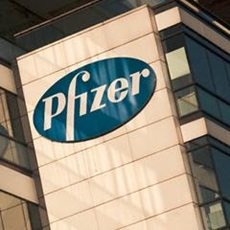Allergen deal to help Pfizer save $35 bn in annual taxes: report
26 Feb 2016
Global pharmaceuticals major Pfizer Inc is expected to save an estimated $35 billion in annual taxes if it pushes through a merger with Allergen and shifts its base to Dublin in Ireland from the United States.
 Pfizer, the world's top pharmaceutical company, is merging with smaller Dublin-based Allergen, in a reverse merger (better known as an ''inversion'' in the US), in which companies are bought by or merge with foreign firms in order to reduce the burden of US corporate tax.
Pfizer, the world's top pharmaceutical company, is merging with smaller Dublin-based Allergen, in a reverse merger (better known as an ''inversion'' in the US), in which companies are bought by or merge with foreign firms in order to reduce the burden of US corporate tax.
The Pfizer-Allergen deal is the largest inversion ever, which would potentially lower the merged entity's annual tax bill by $35 billion in the United States, according to a report published on Thursday by consumer group Americans for Tax Fairness.
After the merger with Allergen, Pfizer will move its headquarters to Ireland, potentially lowering its tax bill by $35 billion even while keeping its US operations intact.
Pfizer had, last year, while announcing the merger plan, said the merger with Botox-maker Allergen would lower its tax rate to about 17-18 per cent, saving it about $2 billion over three years.
But in a report published on Thursday, Americans for Tax Fairness say the New York-based pharma giant will actually save as much as $35 billion annually in taxes alone.
Besides lowering the effective tax rate from 25 per cent to 17-18 per cent, a merger with Allergen will give Pfizer access to $148 billion in overseas profit that the company cannot bring home because of the high tax rate, Americans for Tax Fairness notes in its report.
Bringing the cash would have cost the firm $35 billion, according to the left-leaning advocacy group.
The ATF analysis is based on two Pfizer disclosure: that as of 2014, it had a deferred tax liability of $21.1 billion and second, that it has about $74 billion in overseas earnings that it plans to hold their indefinitely.
Pfizer, the analysis says, has paid taxes overseas based on a 10-year average of the company's foreign tax rate, and arrived at an estimated tax rate of 18.7 per cent for repatriating the $74 billion. This would result in roughly $13.8 billion in tax liability. Along with the $21.1 billion deferred tax liability, the effective tax would go up to $35 billion.
Pfizer's revenues are rising after the drug maker repeatedly raised prices of its top-selling drugs, including erectile dysfunction pill Viagra, pain treatments Lyrica and Celebrex, and antibiotic Zyvox, in recent years. Pfizer also raised prices on three other drugs on average by 39.2 per cent between 2013 and 2015. This year, it's already raised prices on about 60 drugs by more than 10 per cent on average.
Pfizer, however, says its $160 billion purchase by Allergen gives it access to lineup of fast growing drugs and a lower tax rate. The merger will create the world's largest drug maker.
''We believe the Treasury Department can challenge the theft of taxpayer dollars that Pfizer is counting on under this deal,'' said Frank Clemente, executive director of the group.
Acccording to Preston Cooper, policy analyst at the Manhattan Institute, "Politicians who blame Pfizer for relocating to Dublin are barking up the wrong tree. America's punitive corporate tax system is the real villain behind these inversions."
Pfizer said in a statement that the merger ''will create a global, R&D-focused company with the ability to lead in the quest to find cures and treatments for patients with the most feared diseases and conditions of our time, such as Alzheimer's disease Parkinson's disease, cancer and rare genetic disorders. This transaction is not structured to move jobs out of the United States, where we conduct the majority of our research.''
Close on the heels of Pfizer's announcement, Johnson Controls, which said last month that it would merge with Tyco and move its headquarters to Cork, Ireland, said the strategy would save the new company-with a market cap of about $36 billion- about $150 million a year in taxes.
In addition to lowering their tax rate, a company involved in an inversion can often offset taxes with the interest from debt payments made by its US operations to its foreign parent company.


















